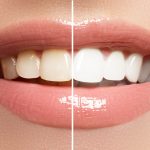Dry Mouth and Oral Health
While everyone will occasionally experience a lack of moisture in their mouth, “dry mouth” or “xerostomia” is an actual medical condition where the mouth is unusually dry for extended amounts of time on repeated occasions. Dry mouth is usually the result of decreased saliva production by the salivary glands in your mouth, and it is most often a side effect of taking certain medications. However, there are a number of circumstances where dry mouth is caused by various medical conditions that directly affect the normal functioning of the salivary glands. In this article your local Surrey dentist will tell you more about the connection between dry mouth and oral health.
Basic Facts About Dry Mouth
Dry mouth as a medical condition is a common problem. It affects around 1 in 10 people, and occurs more often in women than in men. It occurs more often as people age, as people are more likely to be taking medication as they get older. For many people afflicted by dry mouth it is usually just a nuisance, but for some people it can have a significant impact on their overall health, especially their oral health, as well as their enjoyment of and appetite for food.
The Importance Of Saliva
Regular saliva production is an important part of oral health that is often overlooked and taken for granted. Saliva has lubricating properties that keep the mouth working normally and comfortably, and is critical to protecting the oral tissues from sores, ulcers and frictional movements that occur naturally as you eat and speak. Saliva also serves to neutralize acids and help defend your teeth against decay, as well as other fungal, viral and bacterial threats. Saliva also helps to digest food and remineralize teeth. Finally, saliva contributes to the ability to taste and enjoy food, as it is a solvent that transmits taste stimuli to the taste buds. When the mouth does not produce enough saliva, all of these important functions are affected.
A proper amount of saliva is very important to overall oral health. Unfortunately there is no one simple cure for dry mouth, as the treatment depends on the particular cause from among the many possibilities.
What Are the Causes of Dry Mouth?
Dry mouth can be the result of several possible causes:
- The most common cause is as a side effect from various medications. Both non-prescription and prescription drugs can cause dry mouth as a side effect.
- A side effect of various other medical conditions, such as Sjögren’s syndrome or infections.
- A side effect of various medical treatments. For example, the salivary glands can be damaged from radiation to the neck or head, and various chemotherapy treatments will reduce the volume of saliva that the glands can produce.
- Nerve damage to the neck or head area from surgery or injury can cause dry mouth.
- General dehydration can interfere with the ability of the glands to produce adequate saliva. Conditions that cause dehydration, such as excessive sweating, fever, vomiting, blood loss, burns, and diarrhea will cause dry mouth.
- Tobacco use, both smoking and chewing, will affect the production of saliva and will aggravate dry mouth.
What Are the Symptoms of Dry Mouth?
Dry mouth is more than just a temporary lack of saliva. To distinguish the actual medical condition from just a temporary lack of moisture, check the symptoms below.
Common symptoms of dry mouth include:
- A dry and sticky feeling in the mouth and on the lips.
- Excessive thirst.
- Cracked lips, sores inside the mouth, and split skin or sores at the corners of the mouth.
- A dry feeling that extends down into the throat.
- A tingling or burning feeling in the mouth, particularly on the tongue.
- A raw, red and dry tongue.
- Problems with speaking or difficulty chewing, tasting and swallowing.
- Hoarseness of voice, sore throat or dry nasal passages.
- Halitosis or bad breath.
Dry Mouth Can Be a Serious Medical Condition That Impacts Your Oral Health
If you find that you are experiencing a number of these symptoms with a significant degree of severity, then you may be suffering from dry mouth. Your oral health depends on the steady production of saliva. Be sure to seek medical attention to identify the specific cause of your dry mouth, so that you can receive the proper treatment.




